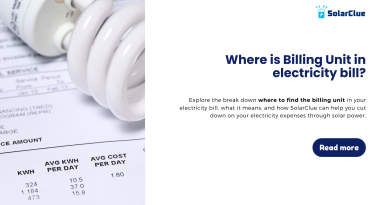How To Calculate Solar Panel Wattage?
Calculating the wattage of a solar panel system is essential for ensuring it meets your energy needs efficiently. This guide will explain the factors influencing solar panel wattage, provide step-by-step instructions for determining the total wattage needed, and discuss considerations for system losses and oversizing.
Table of Contents
Understanding Wattage and Its Relation to Energy Production
- Wattage (W): Measure of power that indicates the rate of energy production or consumption.
- Energy (Wh or kWh): Total amount of power used over time, calculated as wattage multiplied by hours (Wh = W * hours).
Factors Affecting Solar Panel Wattage
1. Panel Size: Larger panels produce more power.
2. Efficiency: Higher efficiency panels generate more power per square meter.
3. Peak Sun Hours: Average number of sunlight hours per day that produce peak power (varies by location).
Estimating Daily Energy Consumption
1. List Appliances: Identify all electrical appliances and their wattage.
2. Usage Hours: Estimate the number of hours each appliance runs daily.
3. Calculate Daily Consumption: Multiply the wattage by the usage hours for each appliance and sum them up.
Example Calculation
| Appliance | Wattage (W) | Usage Hours per Day | Daily Consumption (Wh) |
|---|---|---|---|
| Refrigerator | 150 | 24 | 3,600 |
| LED TV | 100 | 4 | 400 |
| Laptop | 50 | 8 | 400 |
| Lights (5 x 10W) | 50 | 5 | 250 |
| Total | 4,650 |
Calculating the Required Solar Panel Wattage
1. Determine Daily Energy Needs: Sum of daily consumption of all appliances (e.g., 4,650 Wh).
2. Consider Peak Sun Hours: Determine the average peak sun hours for your location.
3. Calculate Panel Wattage: Divide daily energy needs by peak sun hours.
Example Calculation
- Daily Energy Needs: 4,650 Wh
- Peak Sun Hours: 5 hours (example location)
- Required Panel Wattage: 4,650 Wh / 5 hours = 930 W
Considering System Losses and Oversizing
1. System Losses: Typically account for 20-25% loss due to inefficiencies (e.g., inverter loss, dirt on panels, shading).
2. Oversizing: Add extra wattage to compensate for these losses.
Example Calculation
- System Losses: 25% of 930 W = 232.5 W
- Total Required Wattage: 930 W + 232.5 W = 1,162.5 W
The Impact of Battery Storage on System Wattage
- Battery Storage: Allows for storing excess energy for use during non-sunny periods.
- Consider Battery Efficiency: Typically around 80-90%, which may require additional wattage to compensate for storage losses.
Tools and Calculators for Solar Panel Sizing
1. Online Calculators: Various websites offer tools to input your location, energy needs, and other factors to calculate required wattage.
Optimizing System Design for Maximum Wattage Output
1. Panel Placement: Optimize angle and orientation for maximum sun exposure.
2. Avoid Shading: Ensure panels are free from obstructions that could cause shading.
3. Regular Maintenance: Clean panels regularly to maintain efficiency.
Summary Table
| Step | Calculation Example |
|---|---|
| Daily Energy Needs | 4,650 Wh |
| Peak Sun Hours | 5 hours |
| Required Panel Wattage | 4,650 Wh / 5 hours = 930 W |
| System Losses (25%) | 930 W * 0.25 = 232.5 W |
| Total Required Wattage | 930 W + 232.5 W = 1,162.5 W |
Conclusion
Calculating the wattage of a solar panel system involves understanding your energy needs, considering peak sun hours, and accounting for system losses. By following these steps, you can ensure your solar panel system is adequately sized to meet your energy requirements efficiently.
Here at SolarClue®, we offer a smart, practical, and “beautiful” solution. You will be answered for all the questions related to Solar.
We provide all kinds of brands that are the Best Solar panels in India.
If you are the one who is planning for the solar power system. Don’t hesitate to contact our team!
Looking forward to empowering you with solar energy, just like hundreds of our other clients!
FAQs
1. What is wattage in solar panels?
Wattage measures the rate of energy production or consumption in a solar panel system.
2. How do I calculate my daily energy consumption?
List all appliances, their wattage, and usage hours. Multiply wattage by hours and sum the total consumption.
3. What are peak sun hours?
The average number of hours per day when sunlight is strong enough to generate peak power.
4. Why should I consider system losses?
To account for inefficiencies and ensure the system meets energy needs even under less-than-ideal conditions.
5. How does battery storage affect system wattage?
Batteries store excess energy, but their efficiency (80-90%) means additional wattage may be needed to compensate for storage losses.




